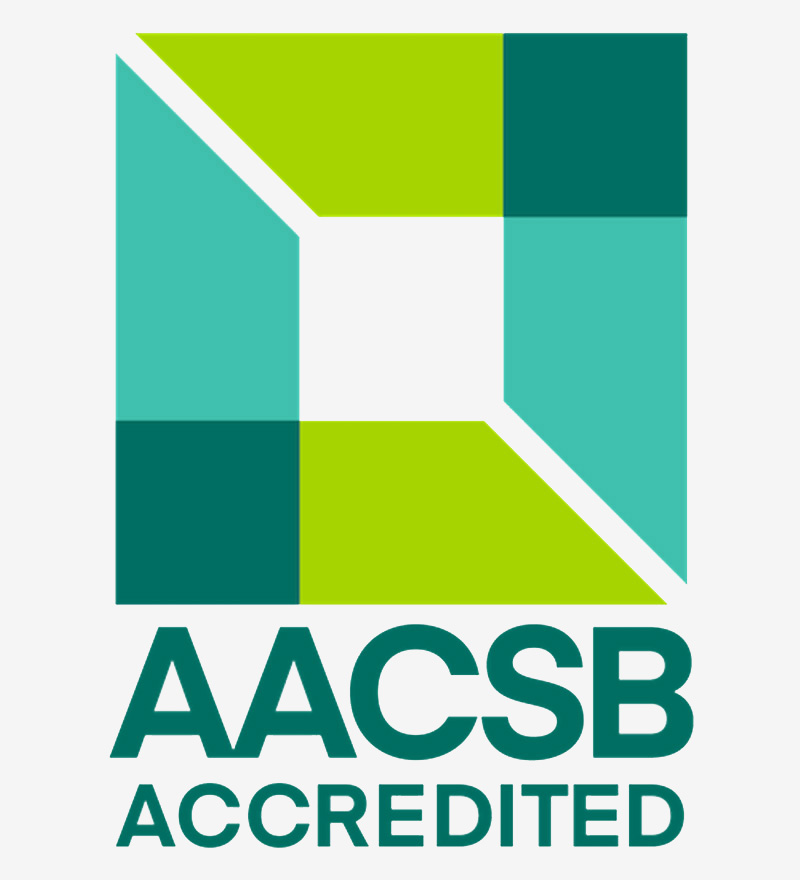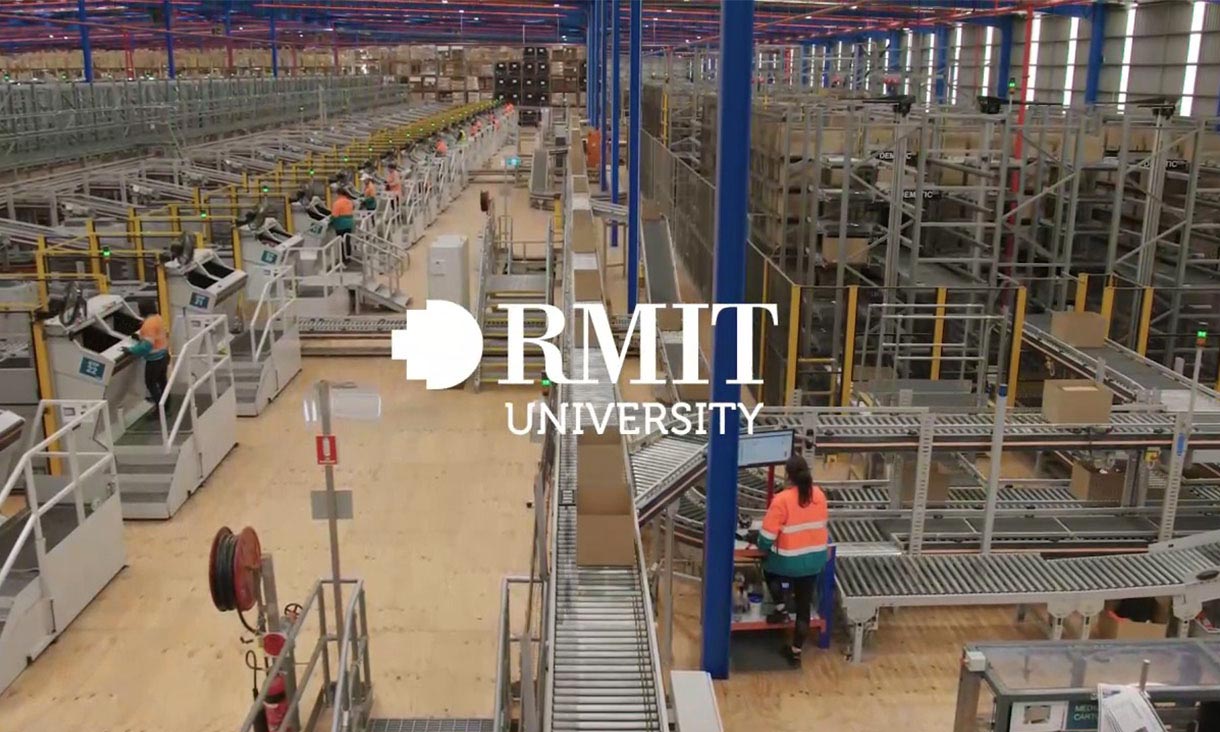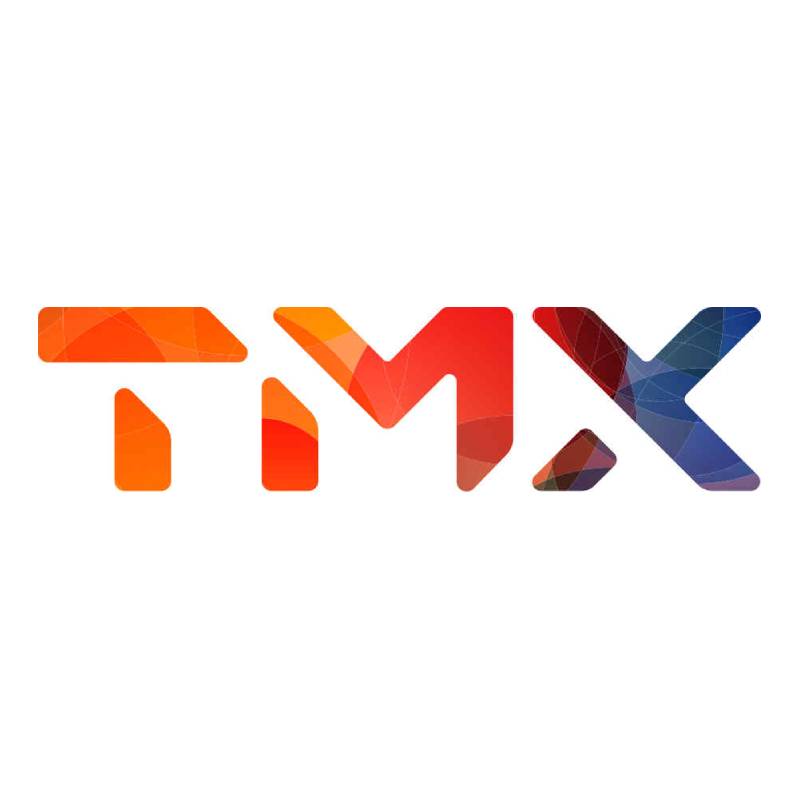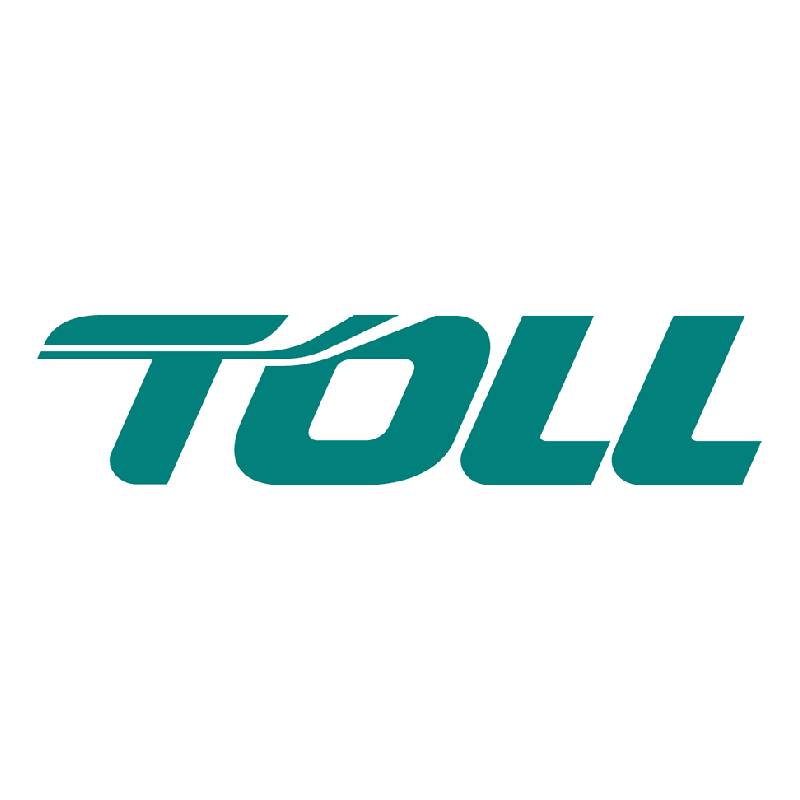Hay and Backman Supply Chain and Logistics Scholarship
For students enrolled in supply chain and logistics programs; worth up to $10,000.
The digitisation and application of emerging technologies including machine learning, artificial intelligence (AI), robotic automation, and blockchain contribute to the vast and expanding logistics and supply chain industry. As you progress through this graduate certificate, your knowledge and understanding of these intersecting fields and technologies will give you the skills required to provide holistic supply chain automation solutions to your own and clients' businesses.
You will discover the ways in which supply chain automation enhances the resilience and effectiveness of organisations, and how this influences all sectors of the community, spanning business and ecommerce, sustainability, healthcare, poverty reduction, and more. Utilising your advanced skills in analytics, you will be able to communicate supply chain solutions that promote sustainability and efficiency, and explore the ways in which automation is changing the workforce.
Throughout your study, you'll benefit from immersive learning through digital technologies, practical scenarios supplied by industry partners, and interviews with industry for key context, challenges and conversations in the supply chain management. You will work through scenarios and simulations designed to allow you to test solutions to discover which is the most resilient to change, commercially sound and likely to succeed. You will graduate equipped with in-demand automation skills and a professional network to support your next career move.
Delivery is designed with advice from industry partners, and aligns with the requirements of people who are working full-time in the logistics sector. With this, you will be able to study flexibly, with access to online resources and recorded lectures.
Gain an edge with upskilling in new, essential technology, and lead organisational automation transformation efforts.
Join a community of professionals and discover how automation applies to different industries, strengthening your network and expanding your point of view.
Build confidence and capability through a range of analytical approaches to optimise logistics for your organisation.
RMIT's College of Business and Law is an accredited member of AACSB
International (AACSB) – the world’s largest business education alliance.
AACSB accreditation is a globally recognised standard of excellence for business
schools, with members in over 100 countries and territories. It signifies a
commitment to quality, continuous improvement and high-quality business
education.


Build capabilities to confidently manage the implementation and evaluation of supply chain automation through this Graduate Certificate. This degree is co-designed and developed in partnership with industry, for industry.
This degree is closely integrated with industry and real-world problem solving as an integral part of the learning experience. We have partnered with key organisations in industry to help build what you will learn in your classes.



If you're an RMIT University alumnus commencing this degree from Semester 1, 2026, you may be eligible to receive a 10% reduction on your tuition fees. See fees for more details.
Structured for working professionals, the Graduate Certificate in Supply Chain Automation is delivered part-time through blended learning comprising face-to-face and online classes according to your preference and availability. Hybrid fortnightly tutorials will be provided outside of normal working hours for online learners in parallel with those able to attend in person. These sessions will include guest speakers from industry, joint problem-solving activities and prepare you for assessments that have business relevance outside of the classroom. You will finish each subject with experiences and artefacts they can add to your public profiles, portfolio or resume.
Your assessment in this course will be based on individual subject requirements, and may include a range of tasks, including presentations, business style reports, analytical reports and other authentic assessment activities as required to allow you to demonstrate your skills in supply chain automation.
The types of classes you have will depend on the course you’re studying. Classes are offered in various formats designed to provide meaningful engagement with staff, industry and peers and provide for access and use of spaces where learning can be applied and active, including an array of specialised equipment.
Most RMIT courses do not include passive large-scale classes such as lectures, instead the content traditionally provided in lectures is made available online. This may be in the form of readings, videos or other on-demand learning materials. This content will also support the basis of interactive learning that takes place in on-campus classes.
The world is constantly changing, and there are universal skills that can help you adapt to the evolving nature of work and global engagement.
As part of your study experience at RMIT, we provide 6 future-focused RMIT Capabilities:
RMIT Capabilities are built into your course as well as some of our extracurricular experiences. They inform the design and delivery of your learning activities and assessments, so by the time you graduate, you’ll be ready to apply these capabilities in your life and work.
This graduate certificate was developed with significant industry input, ensuring that you will be equipped with skills relevant to and demanded by industry so that you are work-ready.
In addition to industry-informed course content, you will learn from guest lecturers, immersive learning through practical scenarios provided by industry partners, 360-degree virtual site visits, "day in the life" videos of supply chain automation professions, and interviews with industry.
Through your studies in this course, you will be equipped with the skills, knowledge and mindsets to contribute to the evaluation, implementation and operations of supply chain automation technology. You will develop the data literacy and analytical rigour to identify opportunities to advise on automation application.
In your professional practice, you will apply advanced analytical techniques to model a range of supply chain scenarios and critically interpret the resultant information to enhance business decision making. You will also evaluate the practicalities and feasibility of contemporary supply chain and logistics knowledge, and analyse complex logistical challenges and formulate innovative solutions in real-world supply chain contexts.
As you utilise systems thinking to evaluate and address contemporary business challenges, you will also be able to coherently articulate technical and conceptual supply chain and logistics knowledge to a range of stakeholders.
The Graduate Certificate of Supply Chain Automation is delivered sequentially, ensuring your learning broadens the deeper you get into your study.
Studying part-time, you will gain foundational knowledge in supply chain and explore automation's impact across sectors and industries. You will also build advanced skills in analytics, allowing you to effectively communicate your insights to a range of audiences and implement recommendations based on your findings. Finally, you will explore supply chain technology adoption, ensuring you can present, develop, implement and manage the best possible solutions and outcomes for your business, clients or organisation.
Choose a plan below to find out more about the subjects you will study and the course structure.
International student visa holders can only study full-time.
The supply chain industry is changing rapidly, and is in need of highly skilled automation specialists.
Upon successful completion of the Graduate Certificate in Supply Chain Automation, you will be equipped with the highly specialised skills currently in demand by industry, including those required to support and implement change and organisational transformations to support the booming warehousing sector.
You need to satisfy all of the following entry requirements to be considered for entry into this degree.
AND
OR:
*All applicants will be required to submit a curriculum vitae (CV).
There are no prerequisite subjects required for entry into this qualification.
A selection task is not required for entry into this qualification.
You must meet the University's minimum English language requirements to be eligible for a place in this program.
You can gain entry to this graduate certificate from a range of RMIT undergraduate programs, if you meet the entry requirements.
Credit, recognition of prior learning, professional experience and accreditation from a professional body can reduce the duration of your study by acknowledging your earlier, relevant experience.
Credit and exemptions will be assessed consistent with the principles of the RMIT Credit Policy.
The Graduate Certificate in Supply Chain Automation is a pathway into the Master of Supply Chain and Logistics Management.
Upon successful completion of the GC211 Graduate Certificate in Supply Chain Automation, you may be eligible for up to 48 credit points of exemption towards MC198 Master of Supply Chain and Logistics Management.
All other credits and exemptions will be assessed in accordance to the RMIT Admissions and Credit Policy and the relevant program structure. Please note, all exemptions are subject to change.
Amounts quoted are indicative fees per annum, and are based on a standard year of full-time study (96 credit points). A proportionate fee applies for more or less than the full-time study load.
*Fees are adjusted on an annual basis and these fees should only be used as a guide.
This program is offered on a full-fee paying basis only. If you are offered a place, you will need to pay the full tuition costs of your program. However, eligible students (such as Australian citizens or holders of an Australian permanent humanitarian visa) may apply to defer payment of some or all of their tuition fees via the Commonwealth Government’s FEE-HELP loan scheme.
For information on how to pay your fees or how to apply for a refund, please see Paying your fees and applying for refunds.
In addition to tuition fees, you will be charged an annual student services and amenities fee (SSAF), which is used to maintain and enhance services and amenities that improve your experience as an RMIT student.
The SSAF is calculated based on your enrolment load and the maximum fee for 2026 is $373.
You may also be required to purchase other items related to your course, including field trips, textbooks and equipment. These additional fees and expenses vary from course to course.
Eligible students (such as Australian citizens or holders of an Australian permanent humanitarian visa) may apply to defer payment of some or all of their tuition fees via the Commonwealth Government’s FEE-HELP loan scheme.
You may be eligible to apply to defer payment of the Student services and amenities fee (SSAF) through the SA-HELP loan scheme. If you use SA-HELP, the amount will be added to your accumulated HELP debt.
If your FEE-HELP and/or SA-HELP loan application is successful, the Australian Government will pay RMIT, on your behalf, up to 100% of your fees. This amount will become part of your accumulated HELP debt.
You only start repaying your accumulated HELP debt to the Australian Government once you earn above the minimum income threshold for repayment, which is set each year by the Australian Government (this also applies if you are still studying). The Australian Taxation Office (ATO) will calculate your compulsory repayment for the year and include this on your income tax notice.
For more information about loan repayment options see Commonwealth assistance (HELP loans) or Study Assist.
You may be eligible for student income support payments from the Commonwealth Government if you are undertaking a graduate certificate, graduate diploma or an approved professionally oriented masters by coursework program. For more information see Income support for Masters students.
If you are enrolled in an eligible program you will also need to satisfy all other student payment eligibility requirements. You can contact Centrelink or Services Australia for further information about student income support entitlements, your eligibility and how to apply.
For students enrolled in supply chain and logistics programs; worth up to $10,000.
RMIT awards more than 2000 scholarships every year to recognise academic achievement and assist students from a variety of backgrounds.
If you're an RMIT University alumnus commencing this degree from Semester 1, 2026, you may be eligible to receive a 10% reduction on your tuition fees.
To be eligible you must be:
*A student is considered commencing if they are enrolled in the first semester of their degree and have not previously been enrolled.
Note:
RMIT Bursary:
Payment of bursary:
If you are an RMIT alumnus there is no application process. Your eligibility to receive the bursary will be assessed at the time of application and enrolment. If eligible, the bursary will be applied directly to your tuition fees.
All College of Business and Law postgraduate coursework programs delivered face-to-face/on-campus (Melbourne campus).
Use our Frequently Asked Questions to learn about the application process and its equity access schemes, find out how to accept or defer your offer or request a leave of absence, discover information about your fees, refunds and scholarships, and explore the various student support and advocacy services, as well as how to find out more about your preferred program, and more.


RMIT University acknowledges the people of the Woi wurrung and Boon wurrung language groups of the eastern Kulin Nation on whose unceded lands we conduct the business of the University. RMIT University respectfully acknowledges their Ancestors and Elders, past and present. RMIT also acknowledges the Traditional Custodians and their Ancestors of the lands and waters across Australia where we conduct our business - Artwork 'Sentient' by Hollie Johnson, Gunaikurnai and Monero Ngarigo.
Learn more about our commitment to Indigenous cultures